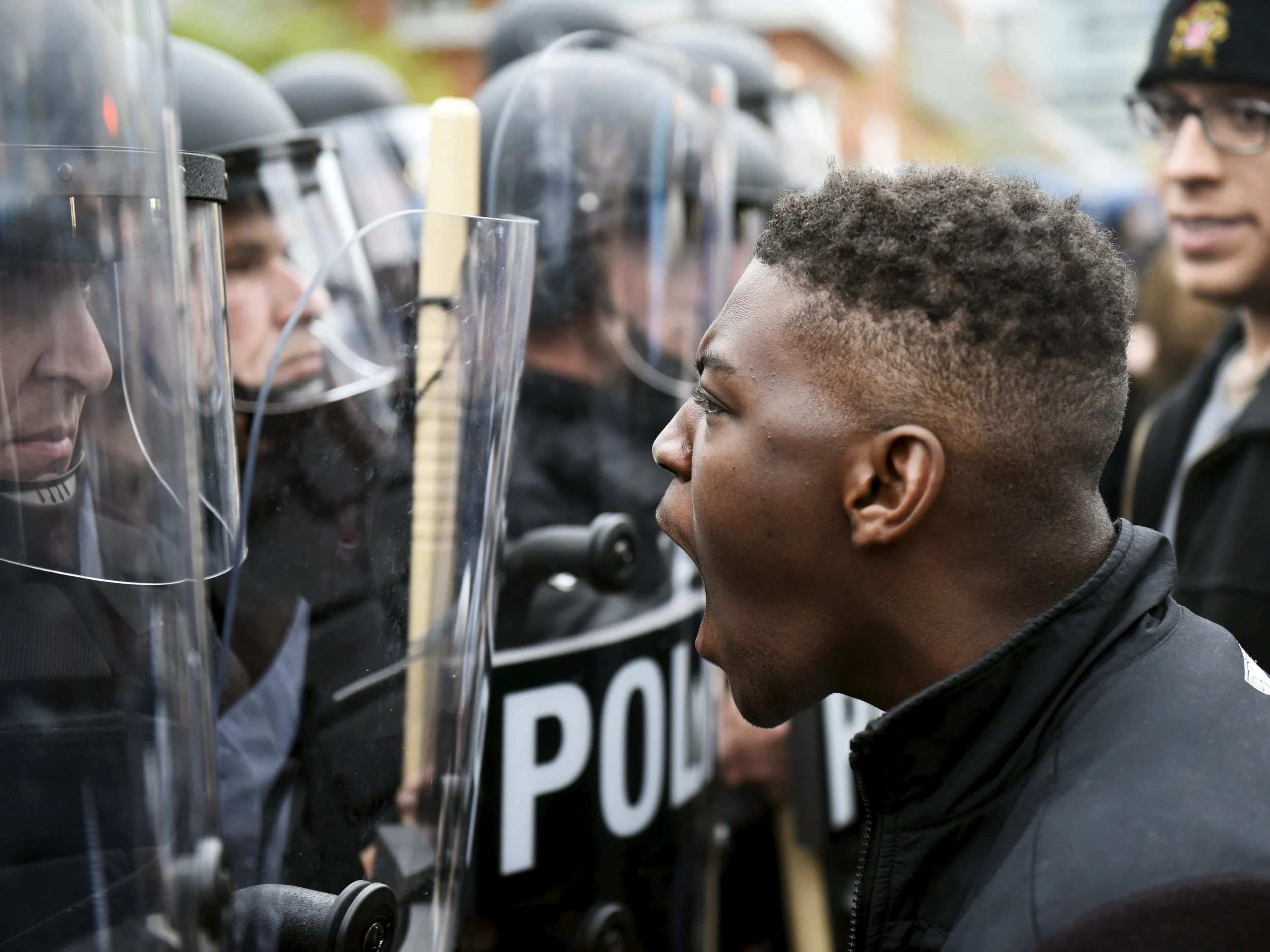The Theology of Black Unrest
In the wake of the budding unrest in Baltimore, Ferguson, and the terrorist attack at Emmanuel AME, Black Christians are trying to comprehend how Christianity informs their forms of resistance. While some have dismissed the faith altogether, others are attempting to fit their radical ideologies within the confines of their faith. This dichotomy is emblematic of a double consciousness that can be paralyzing in moments of social unrest. But in order to reconcile our Blackness with Christianity, we must reexamine the attributes of God, reconsider the role of the church, and reclaim the Gospel.
In seeking to qualify God and his attributes, it is imperative that we situate God alongside us in our distresses along our quest of liberation. Much like the Hebrews marching out of Egypt from Pharaoh, Black people need to situate God in their exodus from racism.
To do so, we must strip Jesus of his whiteness and center Him in his otherness and marginalization. Instead of seeing God as a tyrant, we must reimagine Him as a God who is completely given to the notion of grace and a love that transcends human performance. Instead of requiring perfect adherence to the law, the true God extends unmerited exchanges of love and forgiveness. And the true Jesus is one who loves and forgives unconditionally, consistently empathizing with those on the fringes.
The Black soul recognizes that bigotry was not a part of the creation story, nor was it outlined in the attributes of God himself, but is still confronted with the absolute of it’s existence. But the Black soul rejects this false gospel. Any gospel with tinges of tyranny and exclusion could never proselytize this soul. In the interim, the Black soul, due to this false gospel of intolerance, attaches itself to the evidence of any faith at all, which often manifests as unrest. This unrest is indicative of the symbolic groaning of all creation—the same groaning outlined in Romans 8:22-24. A day where Black souls long for our bodies to be released from sin, suffering, and societal oppression.
In the climate of Black unrest, the Black soul is confronted with the perceived sinfulness of his/her resistance. In these moments, the Black Christian is often paralyzed, unsure of where their allegiance lies. They can either defend their blackness against the onslaught of systemic aggression, or defend their Christianity by remaining patient and complacent in their own oppression as they await spiritual deliverance.
In the same way that self-righteous Christians attempt to make amends for their moral indiscretions, the Black soul is constantly attempting to atone for the sin of his predicament - but to no avail. Unaware of the fact that the quandary of his social position is not of his own doing, he tries to satisfy the demands of white supremacy through respectability. But even after integrating, assimilating, and whitewashing, it still doesn’t remedy his distress. The sin of his skin is ever-present, unyielding to his efforts.
This devotion to respectability is so deep that it has driven some to believe that Black bodies are to be offered up as sacrifices to a fictive white supremacist, Old Testament God. From Emmitt Till to Renisha McBride, we consider these figures as covenantal lambs. But no Black lamb will ever be without blemish in the eyes of white America due to the perceived sinfulness of black skin. From Michael Brown to Rekia Boyd, these bodies are offered in hopes that they will satisfy a false god built in the image of white greed, who has a never-ending appetite for Black Death. But unlike the fabricated god of white supremacy and political repression, the real God is eternally satisfied with the sacrifice that Jesus made once and for all.
The true God is a divine figure void of the trappings of racial bias, exclusion, and an insatiable desire for destruction and demise. God, personified in his Hebrewness through the life and death of Jesus, was sent to proclaim a simple and radical message that has the power to release captives, heal the blind, and free the oppressed. However, today, that Gospel message remains largely unemployed to address societal unrest in spiritually productive ways.
In an attempt to maintain the status quo, the church has exalted white supremacist values over the true message of the gospel. Their modern interpretation of the gospel misses the opportunity to cast down the systemic apathy responsible for the Black soul’s unrest. To do so would invalidate the politics of respectability that society places on Black people in times of turmoil. And instead of encouraging righteous indignation, the church often uses religion to quell rebellion and reasonable outrage.
The indignation that should be directed towards the infrastructures of white Christian indifference is instead inverted. In the same way that victims are blamed for the crimes committed against them, the poor in spirit are met with more rules and regulations rather than support. These pillars, erected by white privilege, are so lofty that they shut out those on the margins and unwittingly cooperate with racial exclusion. Until there is an adequate gospel response to Black unrest, this contention will persist and religion will be of no utility to us.
As Baldwin wrote in The Fire Next Time, “If the concept of God has any validity or any use, it can only be to make us larger, freer, and more loving. If God cannot do this, then it is time we got rid of Him.” I assert the same. I believe that God can indeed make us larger, freer, and more loving; it is our current conception of Him that has rendered Him null and void. God, in light of the work of Jesus, still situates Himself alongside the oppressed and afflicted. But until we reclaim the Gospel and contextualize the unrest that surrounds us theologically, historically, and spiritually, God will be of no use to Black people—or anyone else for that matter.
